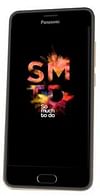Popular Products
Compare Panasonic Eluga I4 Vs Reliance JioPhone Next
Should you buy Panasonic Eluga I4 or Reliance JioPhone Next? Well, your search ends here. Find out which mobile phone is best for you - Compare the two models on the basis of their Price in Bangladesh, Body, Display, Storage, Connectivity, Camera, and Performance. Panasonic Eluga I4 starts at BDT 6,598 and Reliance JioPhone Next starts at BDT 5,938.
Panasonic Eluga I4 has screen size of 5.0 inches and Reliance JioPhone Next has screen size of 5.45 inches. Panasonic Eluga I4 comes up with internal storage of 16 GB and RAM of 2 GB. Reliance JioPhone Next comes up with internal storage of 32 GB and RAM of 3 GB. Coming to the Camera, Former has primary camera of 8 MP Camera and front camera of 5 MP Camera whereas latter has primary camera of 13 MP with autofocus and front camera of 8 MP.
Check detailed comparison below to compare specification for both models. Don't forget to check out expert opinion as well.
Panasonic Eluga I4 Vs Reliance JioPhone Next
| Specifications | Panasonic Eluga I4 | Reliance JioPhone Next |
|---|---|---|
| OS | Android OS, v7.0 (Nougat) | Android v11 |
| Screen Size | 5.0 inches | 5.45 inches |
| Chipset | MediaTek MT6737 | Qualcomm Snapdragon QM215 |
Compare Models
Summary | |||
| Specs Score | 49 | 70 | |
| OS | Android OS, v7.0 (Nougat) | Android v11 | |
| Screen Size | 5.0 inches | 5.45 inches | |
| Chipset | MediaTek MT6737 | Qualcomm Snapdragon QM215 | |
GENERAL | |||
| Device type | Smartphone | Smartphone | |
| Operating System | Android OS, v7.0 (Nougat) | Android v11 | |
| Sim | Dual Sim | Dual Sim, GSM+GSM | |
Similiar Alternatives
- Panasonic Eluga I4
- Reliance JioPhone Next
DESIGN | |||
| Height | 146.7 mm | ||
| Thickness | 8.3 mm | ||
| Weight | 150.7 g | ||
| Width | 71.3 mm | ||
DISPLAY | |||
| Form Factor | Touch | Touch | |
| Screen resolution | 720 x 1280 pixels | 720 x 1440 pixels | |
| Screen size | 5.0 inches | 5.45 inches | |
| Technology | IPS LCD | ||
| Touchscreen | Capacitive Touchscreen | Yes, with Multitouch | |
PERFORMANCE | |||
| Call Records | Unlimited | ||
| Card Slot | microSD Card | ||
| Chipset | MediaTek MT6737 | Qualcomm Snapdragon QM215 | |
| CPU | Quad core, 1.25 GHz | 1.3 GHz, Quad Core Processor | |
| External Storage | Up to 128 GB | ||
| GPU | Mali-T720 | Adreno 308 | |
| Messaging | Yes | ||
| Phonebook | Unlimited | ||
CAMERA | |||
| Camera Features | HDR | Scene Modes & other settings – HDR Mode, Night Mode, Portrait Mode, Photo, Video, Translate, Timer settings | |
| Front Camera | 5 MP Camera | 8 MP | |
| Primary camera | 8 MP Camera | 13 MP with autofocus | |
| Video Recording | Yes | 1080p @30fps | |
MULTIMEDIA | |||
| Audio Jack | 3.5mm Audio Jack | 3.5mm Headphone Jack | |
| Audio Player | MP3, WAV, eAAC+ | Yes | |
| FM Radio | Yes | Yes | |
| Games | Yes | Yes | |
| Speakers | Yes | Yes | |
| Video Player | MP4, H.263, H.264 | Yes | |
BATTERY | |||
| Capacity | Li-Ion 3000 mAh Battery | Non-Removable Battery 3500 mAh | |
CONNECTIVITY | |||
| Bluetooth | v4.0, A2DP | Yes, v4.1 | |
| Browser | HTML | Yes | |
| Edge | Yes | Yes | |
| GPRS | Yes | Yes | |
| GPS Facility | with A-GPS | Yes | |
| USB | microUSB 2.0, USB OTG | Yes, microUSB | |
| WLAN | Wi-Fi 802.11 b/g/n, Wi-Fi Direct, hotspot | WLAN – 802.11 b/g/n AGPS (indoor positioning), 1x1 2.4GHZ | |
NETWORK SUPPORT | |||
| 2G | Yes | Yes | |
| 3G | UMTS 900 / 2100 MHz | Yes | |
| 4G | Yes | Yes | |
| 5G | Yes | Yes | |
MORE FEATURES | |||
| Fingerprint Sensor | Yes | Yes | |
| Sensors | Fingerprint Sensor | Accelerometer (G Sensor),Light Sensor,Proximity Sensor | |
Similiar Comparisions
- Panasonic Eluga I4
- Reliance JioPhone Next
Popular Mobile
- Under 12K
- 12-25K
- 25-50K
- Above 50K
Detailed Comparison of Panasonic Eluga I4 vs Reliance JioPhone Next
Display Comparison: Panasonic Eluga I4 vs Reliance JioPhone Next
Panasonic Eluga I4 has screen size of 5.0 inches whereas other comes up with 5.45 inches. Screen Resolution in both mobiles is 720 x 1280 pixels and 720 x 1440 pixels respectively. In terms of Technology, former uses undefined and latter uses LCD.
Camera Comparison: Panasonic Eluga I4 vs Reliance JioPhone Next
Panasonic Eluga I4 comes up with primary camera of 8 MP Camera whereas Reliance JioPhone Next comes up with 13 MP with autofocus. Some of the Camera Features for both the mobiles include HDR .
Performance Comparison: Panasonic Eluga I4 vs Reliance JioPhone Next
Chipset, one of the important feature of the mobiles used in these Mobiles are MediaTek MT6737 and Qualcomm Snapdragon QM215 respectively. Panasonic Eluga I4 comes up microSD Card card slot and Reliance JioPhone Next comes up with Yes card slot. CPU used in Panasonic Eluga I4 is Quad core, 1.25 GHz and used in Reliance JioPhone Next is 1.3 GHz, Quad Core Processor.
